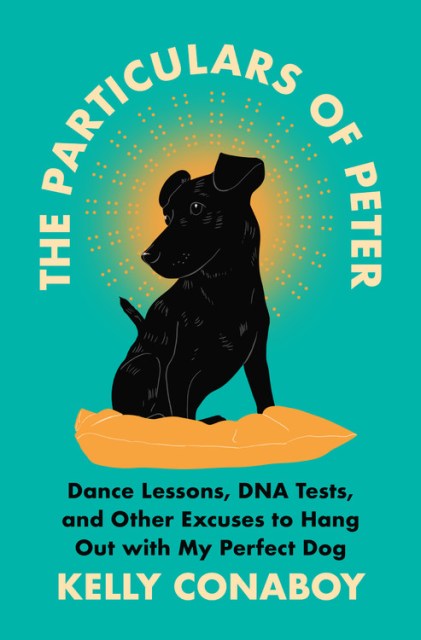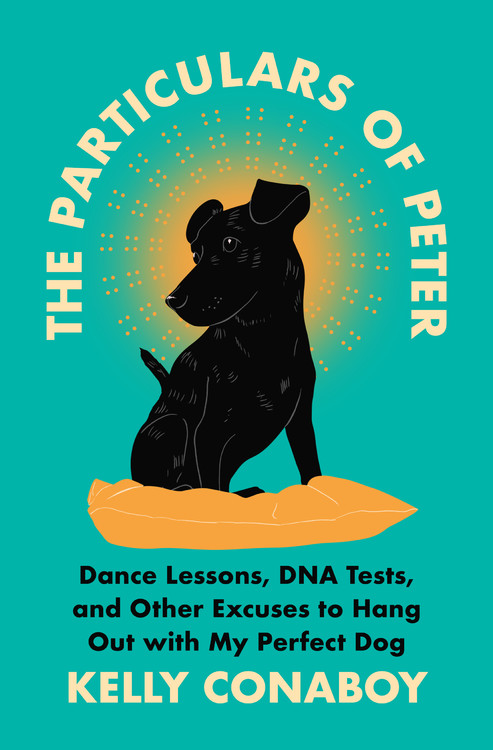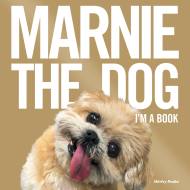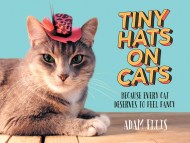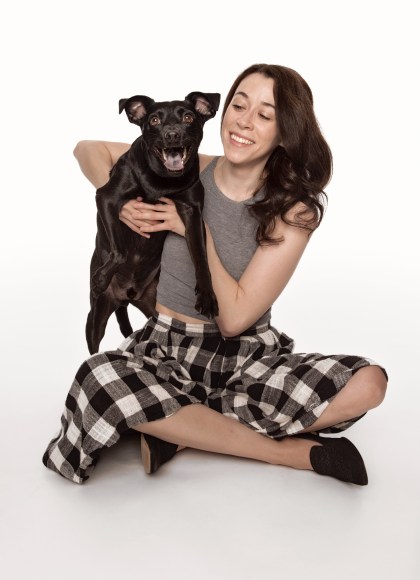Promotion
Use code MOM24 for 20% off site wide + free shipping over $45
The Particulars of Peter
Dance Lessons, DNA Tests, and Other Excuses to Hang Out with My Perfect Dog
Contributors
Formats and Prices
Price
$27.00Price
$34.00 CADFormat
Format:
- Hardcover $27.00 $34.00 CAD
- ebook $11.99 $15.99 CAD
- Audiobook Download (Unabridged)
- Trade Paperback $17.99 $22.99 CAD
This item is a preorder. Your payment method will be charged immediately, and the product is expected to ship on or around December 8, 2020. This date is subject to change due to shipping delays beyond our control.
Also available from:
"This might be one of the month’s, if not the year’s, sweetest books — zaniest, too.” ―The Washington Post
"A hilarious addition to the dogoir canon.” ―People
"Perhaps the greatest love story ever told.” ―Refinery29
"A hilarious addition to the dogoir canon.” ―People
"Perhaps the greatest love story ever told.” ―Refinery29
"The feel-good book the world needs." —PopSugar
From one of the Internet's most original voices, a hilarious journey through the odd corners of obsessive dog ownership and the author's own infatuation with her perfect dog Peter.
The author met Peter in the spring of 2017. He — calm, puppy-eyed, with the heart of a poet and the soul of, also, a poet — came to her first as a foster. He was unable to stay with his previously assigned foster for reasons that are none of your business, but which we will tell you were related to frequent urination. The rescue needed someone free of the sort of responsibilities that would force her to regularly leave the house for either work or socializing, and a writer was the natural choice. Thus began a love story for the ages.
The Particulars of Peter is a funny exploration of the joy found in loving a dog so much it makes you feel like you're going to combust, and the author's potentially codependent relationship with her own sweet dog, Peter. Readers will follow Peter and his owner to Woofstock, "the largest outdoor festival for dogs in North America," and accompany them to lessons in Canine Freestyle, a sport where dogs perform a routine set to music, creating the illusion that they're dancing with their owners. From learning about Peter's DNA, to seeing if dogs can sense the presence of ghosts, The Particulars of Peter will give readers a smart, entertaining respite from the harsh world of humans into the funny little world of dogs.
The Particulars of Peter is a funny exploration of the joy found in loving a dog so much it makes you feel like you're going to combust, and the author's potentially codependent relationship with her own sweet dog, Peter. Readers will follow Peter and his owner to Woofstock, "the largest outdoor festival for dogs in North America," and accompany them to lessons in Canine Freestyle, a sport where dogs perform a routine set to music, creating the illusion that they're dancing with their owners. From learning about Peter's DNA, to seeing if dogs can sense the presence of ghosts, The Particulars of Peter will give readers a smart, entertaining respite from the harsh world of humans into the funny little world of dogs.
Readers will accompany this lovable duo through exciting trips, lessons, quiet moments of connection, and probably a failure or two. By fusing memoir and infotainment, The Particulars of Peter promises to refresh the perennially popular dog lit category in a scrumptiously bighearted barnstormer of a book.
Genre:
-
"This might be one of the month’s, if not the year’s, sweetest books — zaniest, too, as Conaboy indulges her love for her rescue mutt with a visit to “Woofstock” (“the largest outdoor festival for dogs in North America”), among other adventures. Conaboy brings voice and verve to this examination of why our pets make us swoon."The Washington Post
-
"[A] moving and hilarious memoir. . . a must-read for dog owners and dog lovers alike."Oprah Daily
-
"A hilarious addition to the dogoir canon."People
-
"Perhaps the greatest love story ever told, Kelly Conaboy's The Particulars of Peter is a pure delight of a book; it is a tender, curious, and hilarious exploration of Conaboy's relationship with her adopted dog, Peter. . .Conaboy captures the ineffable, joyful quality of experiencing unconditional love, and reminds readers of the pleasures that come with having a pet, all perfect in their own ways."Refinery29
-
"Kelly Conaboy has nailed it: the feeling of being madly, wildly, desperately, endlessly in love with your dog--the kind of love that every time he moves an ear or twitches his nose, you swoon afresh with adoration. If you know that feeling (and I live it every day!) you'll totally relate to this tender, honest, hilarious, portrait of an iconic, precious, and particular inter-species love affair."Sy Montgomery, bestselling author of How to Be a Good Creature
-
"Very, very funny and very, very charming. I'd sit up and beg for this book!"Jack Handey, author of Deep Thoughts
-
"An utterly charming, big-hearted, witty memoir of a girl and her dog. The Particulars of Peter was an absolute joy to read."Jami Attenberg, bestselling author of All This Could Be Yours
-
"Conaboy merges humor, memoir, and reportage in her winning debut about the experience of sharing one's life with a dog. . . Dog enthusiasts will especially delight in this book, but anyone looking for a good laugh will have a ball."Publishers Weekly, starred review
-
"Kelly Conaboy captures, with sagacity and wit, why everyone thinks their dog is the very best dog and why hers just might be. The Particulars of Peter is a great big belly rub for the reader's brain."Josh Gondelman and Maris Kreizman, authors of Nice Try and Slaughterhouse 90210 (respectively) and owners of Bizzy the Pug (collectively)
-
"Conaboy's commitment to pleasing a mild-mannered dog is admirable and charming. An unusual book to please pet lovers."Kirkus
-
"Have you ever thought about how much you love your dog and maybe cried just a little bit? If that’s you, you need this book. In quite possibly the most unique memoir of 2020, Conaboy takes us into the life she shares with her pup, Peter. . . In combining her love for her dog and her own unique, hilarious genius, she takes us into her world of dog psychics, canine freestyling (you learn new things with this book!), dog festivals in Canada, and beyond. This should be your go-to gift for all the people in your life who are absolutely obsessed with their dogs."Shondaland
-
"The Particulars of Peter by Kelly Conaboy is the feel-good book the world needs in 2020. After a year where dog owners spent more time with their four-legged pals than ever before, Conaboy's charmingly sweet exploration of her admittedly codependent relationship with her pup, Peter, is both a warm and informative look at the time-honored bond that exists between dogs and their humans."PopSugar
-
"What you'll get out of this book is an appreciation for Conaboy’s complete and total adoration of Peter, and you'll smile and chuckle often while reading each chapter. . .Get ready to look at your dog through new eyes. Be prepared to smile. Or give this book to someone you know who is obsessed with their dog. They’ll love it."The Book Reporter
-
"The Particulars of Peter is quite simply about the delights of dog companionship, something every human who consorts with a dog knows all about. What is beautiful about Kelly Conaboy’s book is that she captures the sweetness of the first few years of her and her dog’s life together. . . If you have had the pleasure (and the privilege) of a dog changing your life, The Particulars of Peter is the book for you."Write Now Philly
-
"[Kelly Conaboy] is one of the funniest writers out there, and her debut. . .is utterly charming."LitHub
- On Sale
- Dec 8, 2020
- Page Count
- 256 pages
- Publisher
- Grand Central Publishing
- ISBN-13
- 9781538717868
Newsletter Signup
By clicking ‘Sign Up,’ I acknowledge that I have read and agree to Hachette Book Group’s Privacy Policy and Terms of Use
